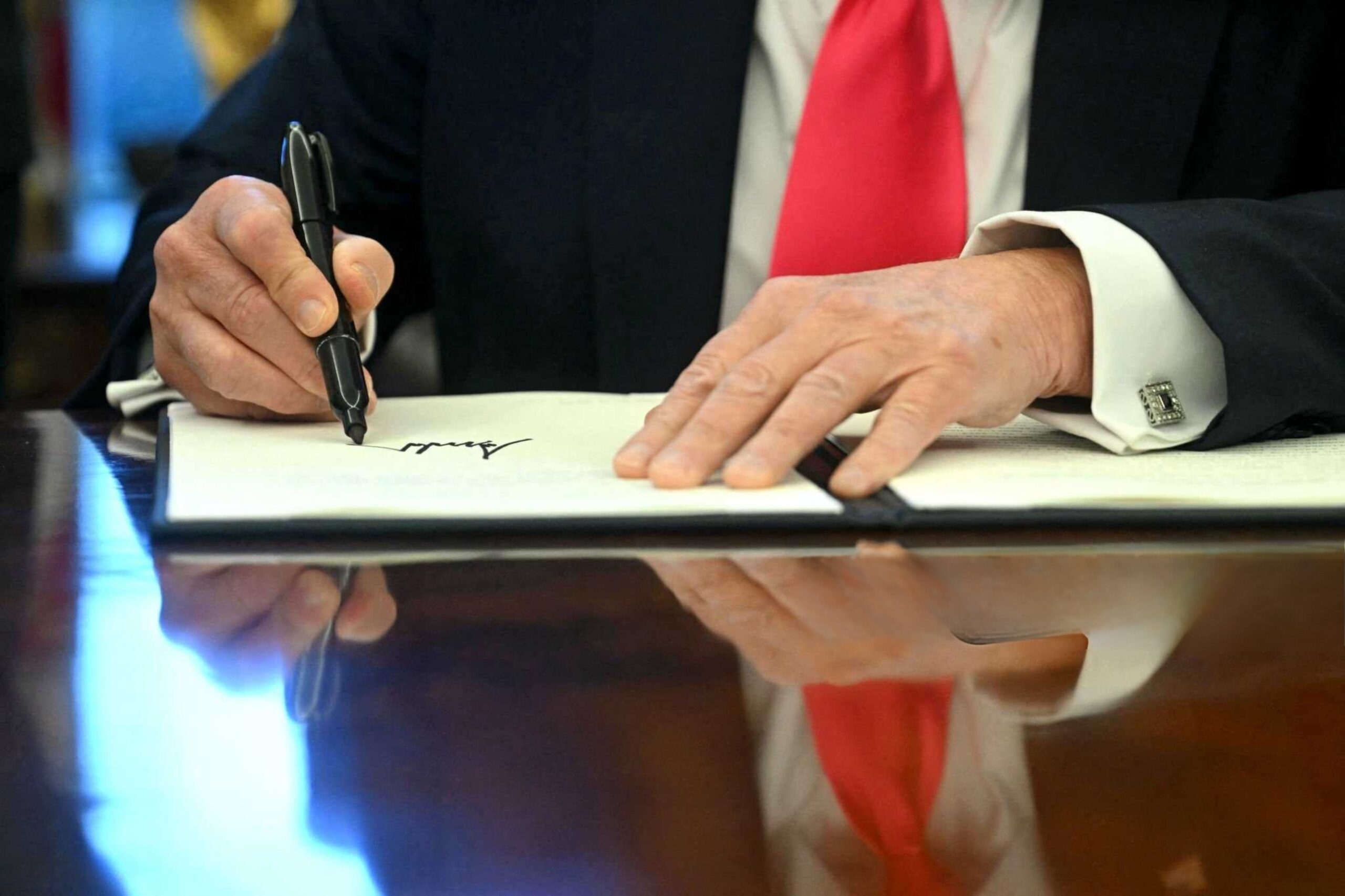Posts tagged collective bargaining
Labor leaders make final push to get repeal of anti-union bill on Utahns’ ballots
April 14, 2025 // UEA, AFL-CIO, Utah Public Employees Association, Utah Professional Firefighters, AFSCME and others have banded together in an attempt to repeal HB267, which bans collective bargaining with government employers — meaning those public employee unions cannot represent members in contract negotiations.
Trump’s stance on unions is what Roosevelt wanted all along
April 11, 2025 // Trump’s executive order, even with its limitations, addresses a longstanding problem in federal governance. The question isn’t whether you support unions or management, but whether you believe the government should prioritize serving citizens over protecting entrenched union interests, regardless of which party controls the White House.
‘Trump and Musk are setting the example’: how companies are becoming emboldened to be more anti-union
April 10, 2025 // That tougher behavior under former president Ronald Reagan sped the decline of private sector unions. Today, just 6% of private sector workers are in unions, while 32% of public sector workers are. Anti-union ideologues are increasingly targeting public sector unions, which often support Democrats. “Because almost half of the labor movement is now in the public sector, the assault that we’re seeing now is really focused on the public sector,” McCartin said. “That really threatens to break the spine of the labor movement.”

Trump puts America first with federal collective bargaining ban
April 3, 2025 // The legal basis for this move is clear — and firmly grounded in common sense. While federal law allows collective bargaining at government agencies, it also allows the president to exclude any agency that deals with “intelligence, counterintelligence, investigative, or national security work.” Collective bargaining must be “interpreted in a manner consistent with the requirements of an effective and efficient government,” according to the same federal law.
Anne Arundel Community College professors unionize for more clarity, structure
April 1, 2025 // The union, called Riverhawk Educators United, earned recognition from the state employee relations board late last week with 62% of faculty in support. Now, the group will start negotiating its first official contract. Nicole Williams, chair of the human services department, said she’s hoping the union will bring more structure and clarity. “We have policies, but we need more policies. There's structure, but we need more structure,” Williams told WYPR.
Face The Nation UAW president Shawn Fain says “tariffs are a tool in the toolbox” in helping auto workers
April 1, 2025 // "Tariffs are a tool in the toolbox to get these companies to do the right thing, and the intent behind it is to bring jobs back here, and, you know, invest in the American workers," Fain told CBS News chief Washington correspondent Major Garrett in an interview that aired Sunday on "Face the Nation with Margaret Brennan." Mr. Trump announced the 25% tariffs last week, which he said will take effect on April 2, escalating his administration's effort to boost domestic manufacturers through aggressive trade measures. Fain, who leads the 400,000-member union that went on a 46-day strike in 2023, called the tariffs a "motivator,"
‘This is the revenge’: Unions lash out at Trump administration over collective bargaining clampdown
March 31, 2025 // “This is the retaliation. This is the revenge. This is the shut ’em up effort,” said Hoyer, adding the actions are “consistent with the Republican Party’s long-standing hostility for the rights of working men and women to organize.” “Federal law gives federal employees the right to engage in collective bargaining,” said Raskin, adding, “That’s how these unions were formed.”

Backgrounder: Executive Order: Exclusions from Federal Labor-Management Relations Programs
March 31, 2025 // The practice of “official time” is when unionized federal employees perform union-related activities, rather than their actual public service duties, while being paid by taxpayers. The Federal Unions EO requires that agencies, upon termination of an applicable collective bargaining agreement, reassign any workers who performed “official time” to positions where they perform solely agency business. It also contains language regarding existing grievance proceedings and allows for the head of each agency to submit a report to the President within 30 days highlighting any agency subdivisions that were not covered but should have been covered under the Federal Unions EO.
Trump Order Could Cripple Federal Worker Unions Fighting DOGE Cuts
March 30, 2025 // The move added to the list of actions by Mr. Trump to use the levers of the presidency to weaken perceived enemies, in this case seeking to neutralize groups that represent civil servants who make up the “deep state” he is trying to dismantle. In issuing the order, Mr. Trump said he was using congressionally granted powers to designate certain sectors of the federal work force central to “national security missions,” and exempt from collective-bargaining requirements. Employees of some agencies, like the F.B.I. and the C.I.A., are already excluded from collective bargaining for these reasons.

Trump signs executive order to end collective bargaining at agencies involved with national security
March 27, 2025 // President Donald Trump moved Thursday to end collective bargaining with federal labor unions in agencies with national security missions across the federal government, citing authority granted him under a 1978 law. The order, signed without public fanfare and announced late Thursday, appears to touch most of the federal government. Affected agencies include the Departments of State, Defense, Veterans Affairs, Energy, Health and Human Services, Treasury, Justice and Commerce and the part of Homeland Security responsible for border security.
